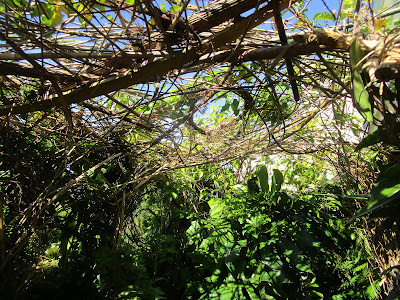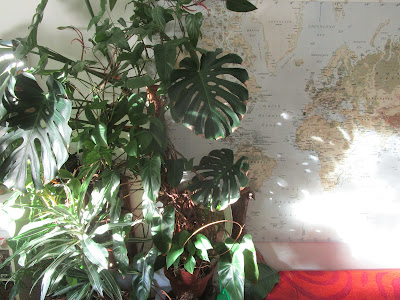
"More than conversation at the interface, it is creative assemblages like these that explore and elaborate the particular dynamic capacities that digital media afford and the ways that through them humans and machines can perform interesting new effects (...) in uniquely particular ways." Lucy Suchman (2009). Human-machine reconfigurations: plans and situated actions.
Mar 21, 2021
March
Mar 20, 2021
March
“There are a total of 399 protected areas in Portugal, 167 Natura 2000 sites - 62 Special Protection Areas (Birds Directive) and 102 Sites of Community Importance (Habitat Directive) - as well as 232 sites designated under national laws. The protected area network in Portugal is strongly influenced by Natura 2000 sites, which make up 60% of the total area covered by protected areas.” in Biodiversity in Portugal [data displayed in February 17, 2021].
See Green Infrastructures in Portugal. See also report from EU (2020) "Mapping and Assessment of Ecosystems and their Services: The state and trends of ecosystems in the European Union", that gives an assessment of the key ecosystems in the EU, evaluates the EU 2020 biodiversity targets, and provides a baseline for the 2030 biodiversity policy and EU nature restoration plan.
Mar 18, 2021
March
"Halting land transformation and degradation could contribute 6.6 (range 2–11) GtCO2e per year to greenhouse gas emission reductions between 2020 and 2050, and land restoration-related activities could contribute a further 18.6 (range 1.8–35.5) GtCO2e per year over the same period, while simultaneously restoring ecological function and ecosystem services, and in some cases, biodiversity" p.73, United Nations Environment Programme (2021). Making Peace with Nature: A scientific blueprint to tackle the climate, biodiversity and pollution emergencies. Image by Monica Pinheiro, license CC BY-NC-SA (CC).
Mar 15, 2021
March
“(…) the analysis suggests that NCS [Natural Climate Solutions] have the potential to limit the pace of climate change significantly, delivering up to one-third of net emission reductions required by 2030. But what makes investments in nature especially attractive if done well is the enormous and varied array of “co-benefits” that can arise alongside directly addressing the biodiversity and climate crises – benefits that accrue to nature and to communities.” World Economic Forum (2021). Consultation: Nature and Net Zero.
Mar 2, 2021
March
"Achieving transformative change requires that the fundamental drivers of overconsumption are addressed, through changes in personal values, norms, economic and social operating rules, technologies and regulations. Given the interconnected nature of climate change, loss of biodiversity, land degradation, and air and water pollution, it is essential that these problems are tackled together urgently." (p. 107) United Nations Environment Programme (2021). Making Peace with Nature: A scientific blueprint to tackle the climate, biodiversity and pollution emergencies.




